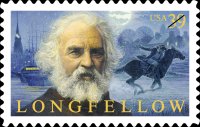Aside from the novel, I’ve been reading, writing, learning about, and pretty much immersing myself in poetry. I’ve posted some bits and pieces, mostly practice and works in progress, over at Spirit Blooms in the Poetry Sketchbook category. Feel free to drop by there if you’re curious. Though I’ve taken creative writing workshops in the past, I’ve never taken a poetry workshop, and I think I have a lot to learn before I go even that far. Right now I’m refreshing my memory with basics that I learned when I was young but are now a bit fuzzy.
Beverly Jackson has been an inspiration with her poetry posts, (not to mention her abstract paintings — wow!). She recently shared her experiences at the Winter Poetry & Prose Getaway - Cape May N.J. and the Palm Beach Poetry Festival on her blog. She also provided examples and book recommendations she got from poets there. Dig into her January archive to read the first of those posts, beginning here.
Right now I’m reading Mary Oliver’s A Poetry Handbook, which I mentioned in a previous post.

My renewed interest in poetry arrives just in time for Henry Wadsworth Longfellow’s bicentennial, which the United States Postal Service is commemorating with a special stamp — the second to bear his likeness. Longfellow is one of only two writers to be immortalized on more than one US postage stamp. Herman Melville was the other, a distinction he earned, in my estimation, with The Encantadas alone — his sketchbook about the Galapagos Islands.
The stamp displays a portrait of Longfellow, as well as a depiction of Paul Revere’s famous ride. The Smithsonian Magazine’s online biography, Famous Once Again provides lots of interesting details about Longfellow’s life. I never knew, for instance, that he was proficient in so many languages — ten altogether, at one point in his life. He’s considered the “uncrowned poet laureate” of the 19th-century US, and February 27 will be his 200th birthday.
I’m out of touch with today’s curriculums, but when I was young, just hearing or reading the first line, “Listen my children and you shall hear,” could set the cadence of Paul Revere’s Ride beating in my mind. Do kids still learn Longfellow in school? I was older when I read Evangeline, but the first verse is just as deeply embedded in my mind. I’ve since gone back for a taste, drawn in by the same first lines:
“THIS is the forest primeval. The murmuring pines and the hemlocks,
Bearded with moss, and in garments green, indistinct in the twilight,
Stand like Druids of eld, with voices sad and prophetic,
Stand like harpers hoar, with beards that rest on their bosoms.
Loud from its rocky caverns, the deep-voiced neighboring ocean
Speaks, and in accents disconsolate answers the wail of the forest.
This is the forest primeval; but where are the hearts that beneath it
Leaped like the roe, when he hears in the woodland the voice of the huntsman?
Where is the thatch-roofed village, the home of Acadian farmers -
Men whose lives glided on like rivers that water the woodlands,
Darkened by shadows of earth, but reflecting an image of heaven?”
(read poem)
I had no idea what a Druid was when I first read that, but the poet drew me into that forest and I was hooked. I wanted to know everything about it. I wanted to know what happened to the Acadians who once lived there.

